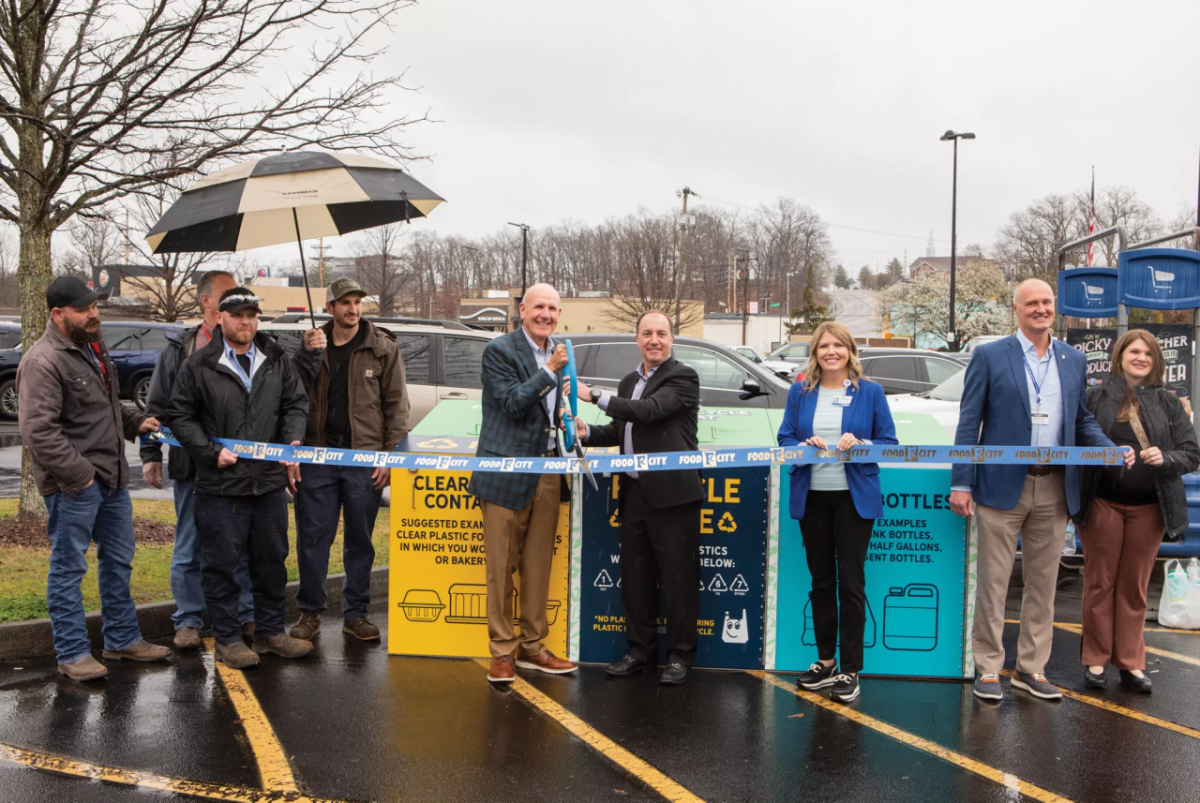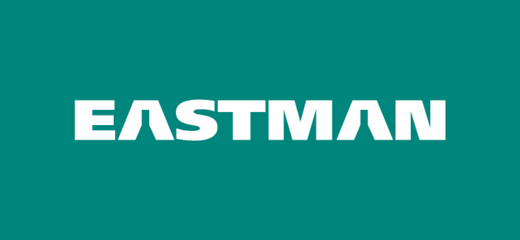Food City, Eastman Team Up To Recycle
Partnership with regional grocery chain expected to expand

The wins for sustainability came quickly when Eastman and regional grocer Food City officially launched their new Shop, Recycle, Repeat recycling program in Kingsport, Tennessee.
“We had people bring bag upon bag of plastic,” said Eastman’s Jacquelyn Keeney. “They had been collecting their plastic for weeks since we first announced the program.”
Steve Smith, Food City’s CEO, was among those who brought a bag of plastic from home. On the first day the recycling bin was ready to receive, Smith deposited plastic.
“Seeing the level of support of leadership at Eastman and Food City has been inspiring,” said Meghana Diwanji. “They made sure there were no roadblocks that would prevent this from happening.”
Keeney and Diwanji are key members of an Eastman team that worked with their Food City counterparts to bring plastic recycling to Kingsport. In the first month, the early community response was overwhelming, said Keeney, a circular economy project leader at Eastman. “We’ve collected a lot of plastic so far — 3,000 pounds in the first month,” she said.
How the recycling program works
Three Food City stores in Kingsport have large recycling bins that are clearly wrapped with Shop, Recycle, Repeat information and a QR code that connects to a website with recycling locations, demonstration videos, FAQs and more. Eastman will use a wide range of hard-to-recycle plastic packaging to feed its new molecular recycling plant in Kingsport, one of the largest in the world.
It’s worth bookmarking the Shop, Recycle, Repeat website, as more Food City locations will be added in the future. This program is one prime example of Eastman’s commitment to collaborations that drive community recycling.
Changing the future of recycling
Food City has a growing footprint across the region of Northeast Tennessee and Southwest Virginia and has more than 150 stores in five Southeast states.
“Once we establish the program in Kingsport, we’ll be working to bring this to additional stores throughout our region,” Smith said. “We’re excited about this opportunity, and we’re even more excited to partner with Eastman as they change the future of recycling as we know it.”
The capabilities of the new molecular recycling facility made Shop, Recycle, Repeat possible. Still, Eastman’s facility can recycle so much plastic that items collected in the Food City bins will essentially be a drop in the bucket. Eastman’s new recycling plant can process more than 110,000 tons each year, the equivalent of 11 billion single-use water bottles.
“If we collected 100% of the plastic in the nine Northeast Tennessee counties for a year, it would run our facility for 12 days,” Keeney said. “It’s not a needle mover in terms of the feedstock Eastman needs, but it’s important for the community. That’s what I remember when Food City toured the recycling plant. After the tour, leaders from Food City and Eastman sat down at a table and said, ‘Whatever it takes, we need to do this for the community.’ ”
The project's pilot phase will not only help the community make a difference in reversing the plastic waste crisis but also provide learnings that Eastman and Food City can apply elsewhere.
“What’s extraordinary about this program is that we can make a difference not only in this community, but also others as this program grows to additional Food City stores,” Keeney said. “We’re going to be able to provide a recycling option to very rural communities that would never otherwise have the opportunity because it’s just not economically sustainable for some municipalities.”
Brad Lich, Eastman executive vice president and chief commercial officer, reiterated an important point. Innovation like Eastman molecular recycling is essential for positive change, but technologies alone aren’t enough. It will take partnerships — like the one between Eastman and Food City — to give our society a recycling system for the modern age.
“We’re happy to call this beautiful area home, and we want to work together to protect what we have here,” Lich said. “That’s why we’re doing what we do at Eastman.”

